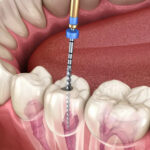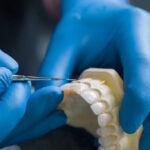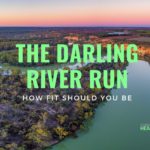Seven Tips for Selecting a Cosmetic Surgeon
The most important factor to be cognisant about is the difference between plastic surgeons and cosmetic surgeons. Most of us think that both terms are synonymous with each other, but that is not the case. In Australia, it is a matter of specialist training and length of education within that specialised field. Plastic surgeons must have studied specialist surgery for a minimum of five years and have a total of twelve years of medical and surgical training. They then, can call themselves Specialist Plastic Surgeons (SPS) and are Fellows of the Royal Australasian College of Surgeons (FRACS). These SPS have been especially trained to perform invasive surgical procedures. Doctors with a Bachelor of Medicine and Bachelor of Surgery (MBBS) do not have the same level of training in invasive surgical procedures and are not accredited by the governing body. They are, however, able to promote themselves as performing cosmetic surgery on this basis. Here are seven tips for selecting a cosmetic surgeon.
Specialist Plastic Surgeon or Cosmetic Surgeon?
If your selected surgeon is not a SPS, then, your cosmetic surgeon, may have done a weekend workshop conducted by a breast implant distributor in how to perform breast augmentation surgery. This may be on top of a basic medical degree and a one-year internship in a hospital. Is this enough specialised training to perform invasive surgery on your body? Reports in the media about horrific cases of cosmetic surgery gone wrong in Australia, would indicate that is not the case. If your doctor is promoting himself or herself, as Dr Smith (or whoever) operating from a cosmetic surgery clinic, then, you know they are legally not allowed say they are a surgeon, because they are not. Invasive surgical procedures are not to be taken lightly or something to bargain with.
Check Your Cosmetic Surgeon’s Credentials
Never assume anything, my father used to say to me, and he was right. Check your cosmetic surgeon’s credentials prior to signing any contract or having any procedure performed upon your person. There is a common misconception, in this day and age, that plastic surgery is somehow safe as houses. All surgery carries serious risks by its very nature; and if your surgeon is not really an experienced and highly trained specialist surgeon, then, you may be in trouble.
The First Cut is the Deepest
Invasive surgical procedures and the title of this well-known song have some essential things in common. Once you are under the knife there is no backing out or time for second thoughts, so, do not rush into cosmetic surgery. This tip may save you some expensive reconstructive surgery, which will be needed to clean up the mess made by your first hasty wrong choice.
Plastic Surgeons Do It Better
SPS have available to them, a comprehensive range of surgical techniques and solutions at their fingertips, because they are specifically trained to do so. Your inexperienced cosmetic surgeon may only have one trick to their bow, when it comes to performing your augmentation. Don’t put yourself into the hands of shallow learning and abilities. Plastic surgeons know that cosmetic surgeons, often, take shortcuts, due to their lack of technical surgical knowledge and experience.
Word of Mouth Recommendations
Another smart tip for selecting a cosmetic surgeon is to ask around friends and family for a word of mouth recommendation. The proof is in the pudding, as they say; and truthful feedback from someone you trust who say has had a successful breast augmentation operation is worth a thousand shiny brochures and website pages. They say, time heals all wounds, so, hearing positive reports about a cosmetic surgery procedure a year or two down the track is particularly valuable information.
GP Referrals for Cosmetic Surgeons
A referral from your local GP is another good source to investigate, when seeking the services of an excellent cosmetic surgeon. GPs are referring hundreds of patients to reputable plastic surgeons every day of the week.




